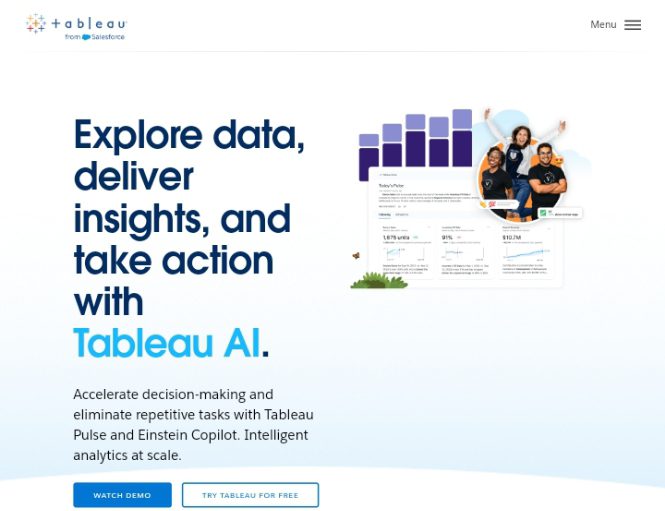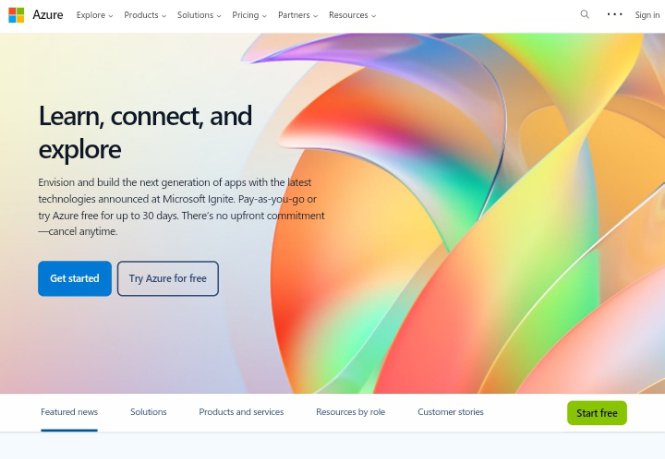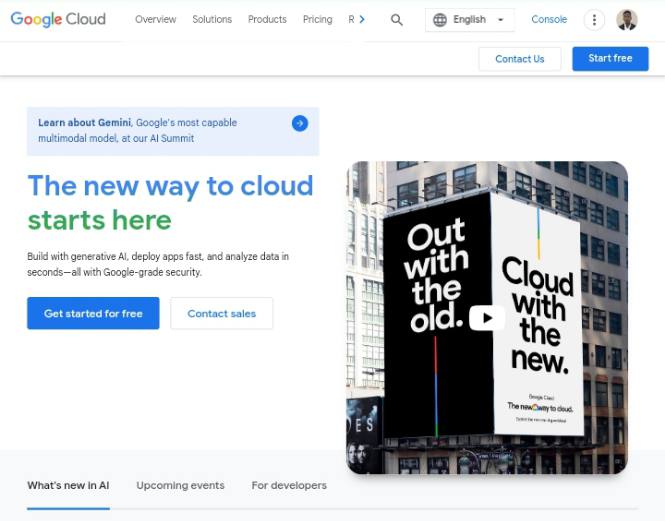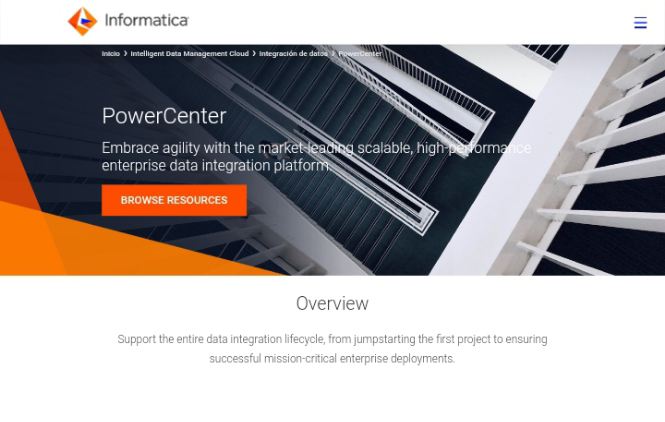An enormous amount of data is generated daily as almost every part of our life contributes to data generation. These days, data plays a significant role in our daily lives such that it is emerging as a vital resource. Many people consider data to be the new money.
Now if data is so vital, it becomes imperative to keep track of them. And since there’s a lot of data, deciphering data and finding relevance in the noise of systems and technology is a problem for businesses in today’s highly interconnected global economies.
Most businesses now depend on data management tools to get through this hurdle. There are tons of data management tools that you can pick from. We have taken the time to list some of the best. Go through our list and see which one suits your needs.
Table of Contents
WHAT IS DATA MANAGEMENT?
Data Management (DM) is a collection of practices, concepts, procedures, processes, and a wide range of accompanying systems that allow an organization to gain control of its data resources. It is the act of gathering, storing, and utilizing data in an economical, safe, and efficient manner so that crucial business decisions can be made by connecting and piping in data from many sources.
You Might Want To Read: 30 MOST POPULAR DATABASE MANAGEMENT SOFTWARE
WHAT ARE THE TYPES OF DATA MANAGEMENT?
Every company is different, therefore there are many different approaches to data management. Businesses are free to mix and match their data management strategies, but the following methods are the most used:
1. Product Information Management (PIM)
PIM tools automate and centralize the management of product information across many supply chains, sales channels, and other channels, making them perfect for manufacturers and merchants.
2. Data pipelines
A data pipeline is a way for companies to automatically move data between two or more distinct systems. To add more leads to your profiles, you can, for instance, link your website analytics to your sales app. During the exchange process, the data pipeline can occasionally improve or modify your data, but it can also occasionally leave the raw data unchanged.
3. Data Modeling
This category aids in the adaptation of data for storage by establishing conceptual models and standards for data consistency and quality.
4. Data Warehouse (DW)
DW products offer data storage options but they do not come with specialized data management procedures. They are frequently connected to already-existing hardware and are just used for data storage. Separate tools could be needed for other procedures including data security, metadata management, and data quality analysis.
5. ETLs (extract, transform, load)
ETL is a kind of data pipeline. It loads data into a new location for storage after extracting it from a database and formatting it. One benefit of the ETL is its ability to combine data from several sources into a single solution.
6. Master Data Management (MDM)
MDM tools are made to manage vital corporate data, including personnel, customer, and operational information. They guarantee consistency and quality by centralizing, synchronizing, and cleansing data.
WHAT IS A DATA MANAGEMENT TOOL?
Data management tools are tools that assist a business or organization in managing, distributing, analyzing, and storing data. A corporation can frequently utilize a variety of tools with distinct purposes when assembling a data management plan.
Data management tools are usually adaptable, allowing businesses to tailor them to exactly what they need.
You Might Also Like: AMAZING 14 FREE DOCUMENT MANAGEMENT SOFTWARE
RECOMMENDED BEST DATA MANAGEMENT TOOLS
The following is a recommended list of the best data management tools:
1. Tableau

Tableau is ranked first on this list of best data management tools because it is one of the most popular data management tools accessible. It has been in the data management business for years, so it has had plenty of time to figure out what works best for its consumers, which is part of the reason it is so popular.
Tableau facilitates the creation of customized data reports for your analytics and conventional functions. You can drag and drop the data elements you wish to add to your reports using its VixQL interface.
Tableau also provides a variety of software options and pricing tiers. Tableau Creator and/or Explorer are the better options because Tableau Viewer is the least expensive option, but it lacks interactive capabilities and analytics. The pricing starts at $70 per user per month.
2. Amazon Web Services
Next on our list of best data management tools is Amazon Web Service. AWS uses a combined set of powerful technologies to create a powerful cloud data management stack. This platform provides a range of essential services that meet various types of data management requirements for companies that handle large amounts of data.
Among the main products are Amazon Athena, Amazon S3, and Amazon Glacier. Pricing for AWS differs according to the particular installation, which emphasizes the need for customized cost analyses for maximizing consumption and expense.
3. Oracle Data Management Suite
One of the best data management tools, The Oracle Data Management Suite, is a comprehensive platform that offers a suite of tools that let users create, implement, and oversee projects that are driven by data. It does this by distributing authoritative, consolidated master data throughout an organization and distributing it to all operational and analytical applications.
It facilitates cross-functional cooperation, policy compliance, repeatable business processes, data governance, quality, and change awareness across the entire organization. The pricing for The Oracle Data Management tool starts at $6 per GB per month.
4. Fivetran
Another tool that made our list of best data management tools is Fivetran. Fivetran is a cloud-based data integration platform that automates data transformation and transfer between sources and destinations.
It offers ready-made connections that make it simple to load data into data lakes and warehouses from files, databases, apps, and APIs. Fivetran’s robust features make it easy to extract, load, and convert data from a variety of sources and destinations, which simplifies data integration.
5. Microsoft Azure

Microsoft Azure is another very potent tool on our list of best data management tools. Microsoft Azure provides an extensive suite of analytics tools to efficiently use data saved on the Azure platform, along with a wealth of options geared toward building a solid cloud-based data management system. Azure can handle a wide range of database types and data warehousing methods and has a flexible toolset for effective management.
Microsoft Azure also offers a wide range of essential services that address the various requirements of database management, such as traditional SQL databases and VM-based SQL servers. Azure also offers smooth integration with Blob storage, delivering effective unstructured data storage options. Azure pricing varies and depends on the particular installation, so businesses can customize their data management plan to fit their unique needs and budgetary restrictions.
You Might Want To Read: 11 BEST PERFORMANCE MANAGEMENT TOOLS
6. Talend
Talend is another excellent data management tool on our list of data management tools. It features a wide range of tools that all deal with data. Talend’s data profiling is one of its best features. It evaluates your data through data profiling to look for any quality problems. It also provides self-service tools so you can organize your data however you want to.
Talend has flexible storage where all of your data can be kept on your company’s property, and it can be connected to the cloud so that you can access it from anywhere.
7. Syndigo
Syndigo is next on our list of the best data management tools. Syndigo offers a wide range of products designed to give businesses control over their data. Their MDM software is at the forefront of their services. It offers a comprehensive, cloud-native platform for multi-domain Master Data Management.
With the help of this all-inclusive solution, which includes essential elements like data governance, data quality, reporting, and more, enterprises can easily manage and maximize their data assets.
Companies can achieve increased data control, improved data quality, streamlined reporting procedures, and unlocked useful insights to support well-informed decision-making with this free master data management platform.
8. SAP Data Management
SAP Data Management is one of the most popular and widely used data management tools. It is an integrated technology platform that connects on-premise and cloud-based applications and provides a single point of access for all data—transactional, analytical, structured, and unstructured.
SAP Data Management gives users access to metadata management tools so that they can enjoy the advantages of cloud computing which include low cost of ownership, elasticity, serverless principles, high availability, resilience, and autonomous behavior.
9. Google Cloud

Google is known for excellence and showed the same with the great tool. Google Cloud stands out among other data management tools because it offers many advanced cloud-based data management solutions.
Aside from providing a wide array of data management capabilities, Google Cloud also includes a useful workflow manager that efficiently connects disparate parts, improving overall system coherence and operational efficiency.
The fundamental elements of Google Cloud are BigQuery, which supports tabular data storage and enables analytical capabilities via SQL-style queries, and Cloud BigTable, which functions as a NoSQL database-style storage solution
In terms of user experience, users with advanced technical expertise can encounter a learning curve as they navigate through the extensive set of features and functionalities, even though integrating Google Cloud tools could be a seamless addition for those already operating within the Google Cloud environment. It should be noted that the cost of Google Cloud services varies depending on the particular needs of each user and organization in terms of implementation and consumption.
10. IBM Infosphere Master Data Management Server
Next on our list of best data management tools is from IBM. The all-inclusive IBM Infosphere Master Data Management Server facilitates the management of enterprise data, presenting it in a single, reliable view and providing analytical capabilities. It consists of data quality analysis, event management, transaction control, multi-domain support, and security.
Regardless of the system or model, it handles every facet of crucial organizational data and provides immediate business value alignment, actionable insights, and enterprise-wide compliance with data governance, rules, and regulations. Data is orchestrated by IBM Infosphere during the whole information lifecycle.
You Might Also Like: 4 REASONS BUSINESSES ARE ADOPTING DOCUMENT MANAGEMENT SOFTWARE
11. Microsoft Power BI
This is another amazing tool from Microsoft. It is one of the best data management tools out there. Since Microsoft Power BI interfaces with other Microsoft products, such as Excel, you can import data spreadsheets directly into the program after creating them.
Power BI’s predictive analytics function examines your current data and makes predictions about future patterns. This can assist you in making more efficient plans for your marketing, budget, and other areas. There are various plans available for Power BI, such as the Pro and Premium versions and the pricing starts at $9.99 a month for each user
12. Informatica PowerCenter

Next on our list of best data management tools is Informatica PowerCenter. It is a powerful on-premise Extract, Transform, Load (ETL) tool renowned for its extensive feature set that meets a wide range of data management requirements. It has a great focus on enabling seamless communication and provides a wide variety of out-of-the-box connectors to make integration with various data sources simple.
One of its unique features is that it offers automated data validation, which does away with the requirement for complex programming. This streamlines the procedure and allows users to guarantee data dependability and accuracy more effectively.
In a digital world that is changing quickly and is dominated by cloud-based solutions, Informatica PowerCenter offers a dependable on-premise solution that is especially useful for businesses that manage complex regulatory requirements. Because of its versatility and extensive feature set, it is a top choice for businesses looking for a reliable data management tool that complies with strict regulations.
13. Stitch Data
Wrapping up our list of best data management tools is Stitch Data. It is one of the top cloud-based Extract, Transform, Load (ETL) platforms that offers a wide range of powerful capabilities designed to improve and expedite data management procedures.
Stitch Data is notable for its easy connection with a wide range of data sources, both inside and outside the cloud. Stitch Data guarantees a thorough and adaptable method of data migration and administration because it can effectively move data to Amazon Redshift, S3, BigQuery, Panoply, and PostgreSQL,
Its user-friendly interface makes scheduling data replication simple and provides an easy-to-use method for managing data transportation chores. Stitch Data’s automated alerting system and error handling mechanism cooperate to quickly address problems in the case of an error, guaranteeing continuous and seamless data flow.
In terms of cost, Stitch Data provides adjustable options with monthly rates as low as $100, with expenses based on the amount of data processed. This guarantees scalability and affordability for companies with different sizes and data management requirements.
You Should Read: 10 BEST ENTERPRISE PASSWORD MANAGEMENT
BENEFIT OF DATA MANAGEMENT TOOLS
1. Visibility
All data sources are combined into a single feed through data management tools, providing you complete control and visibility over your data in a single, comprehensive perspective.
2. Reliability
Employees shouldn’t be expected to sort through data to determine what is and isn’t accurate. Businesses can guarantee dependability while reducing time to value with data management tools.
3. Safety
Unmanaged data poses a significant security risk. You can protect your information from unwanted access by using data management tools to get control over it. This is one of the best defenses against the costly difficulties caused by data breaches.
4. Profitability
Only when data is mobilized can it increase the profitability of your company. Finding insightful information about your company through data management tools enables you to make more lucrative selections.
5. Transparency
According to research, 70% of customers don’t trust businesses that use or sell their personal information. Although it takes time to earn your consumers’ trust, being open and honest about how you use their data can help. Gaining your clients’ trust and locking down their data can be facilitated by sharing your data rules with them and data management tools come in handy here.
6. Scalability
The good news is that managing data manually is no longer necessary for your company. Data management can be done automatically and on a large scale with data management tools. This is the most effective approach to guarantee data security and uniformity throughout your company.
7. Consistency
Misunderstandings can arise due to inconsistent information. On the other hand, data management tools provide a single, centralized view of your raw data for everybody to see.
FINAL WORDS
The availability of sophisticated data management tools has become critical for organizations looking to derive value from their data assets in the ever-changing field of data management.
The aforementioned list of the recommended best 13 data management tools includes a wide variety of tools for various facets of data handling, storage, analysis, and governance. We hope the list was helpful. We’d love to know your thoughts. Share them with us in the comment section below.
REFERENCE
- https://www.indeed.com
- https://blog.hubspot.com
- https://svitla.com
- https://www.webfx.com